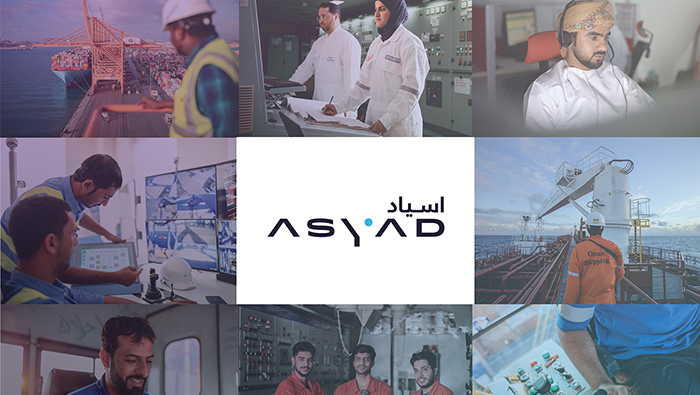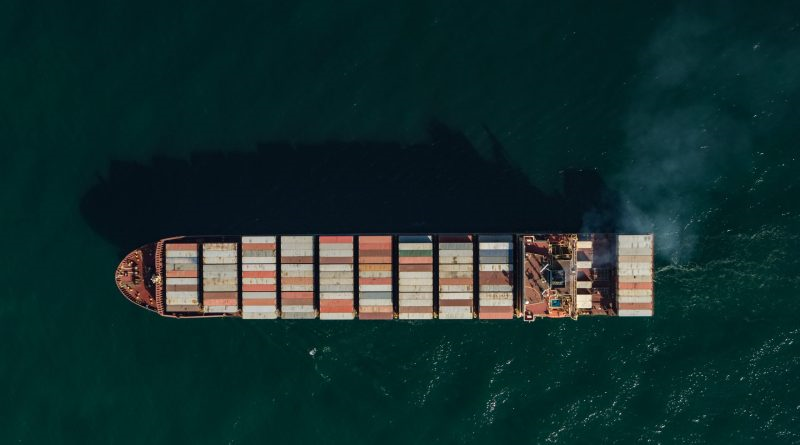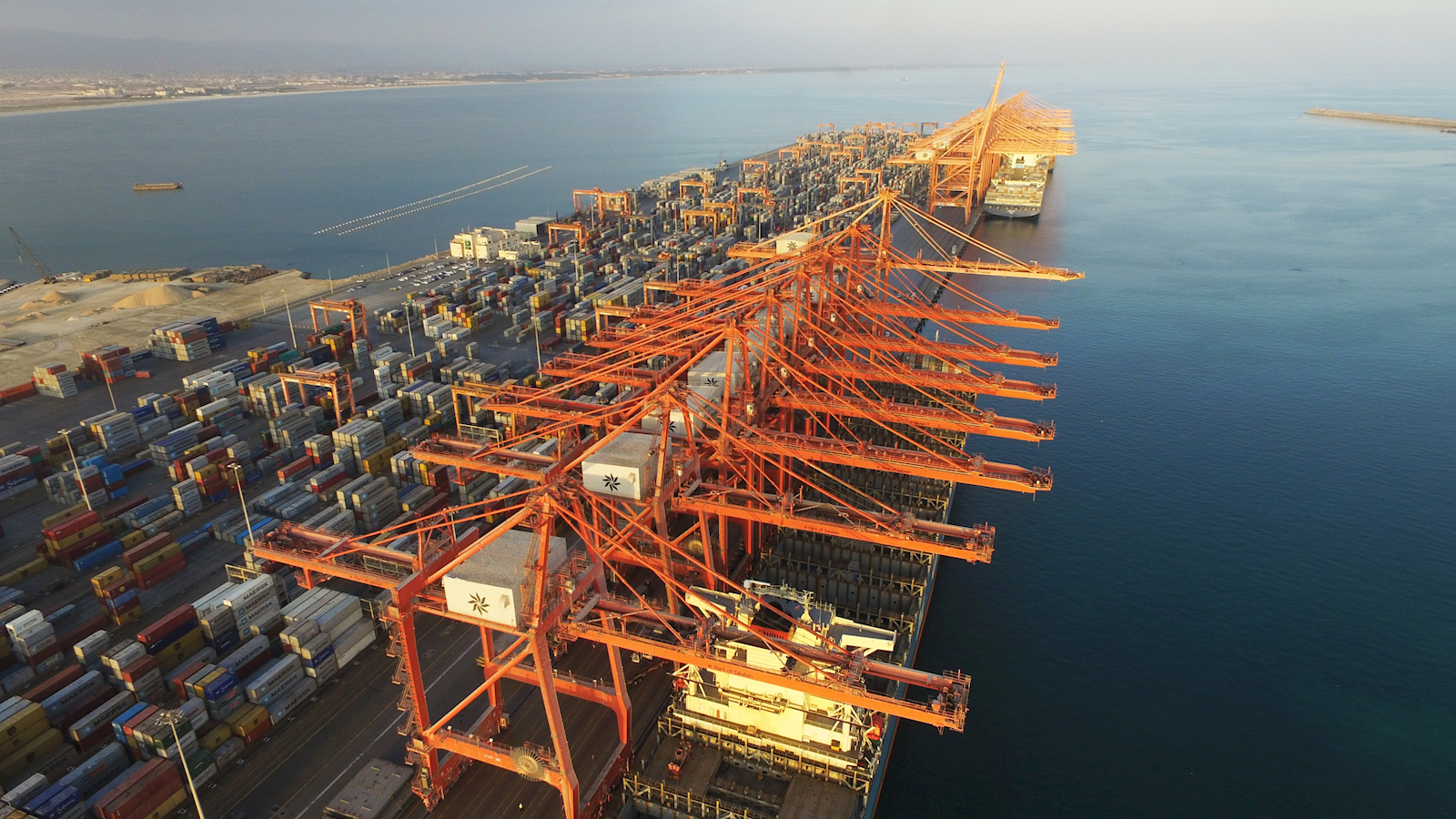OMAN LOGISTICS: A BURGEONING WORLD CLASS “BLUE ECONOMY”
Set on the profitable axis of the Arabian Gulf and Indian Ocean, the Sultanate of Oman has centuries-long history of seafaring. Besides its strategic location at the nexus of maritime trading routes, its marine territory and copious resources proved a great boon for the country whose shipping and port industry has undergone a technological renaissance; transforming from once a predominantly artisanal sector into a burgeoning world class “blue economy”.

Belgian economist and the father of “The Blue Economy”, Dr. Gunter Pauli, a participant in the international “Ocean Economy and Future Technology” Conference that took place in February 2019 in Muscat, described the Sultanate as an “island of peace and stability,” especially among many “politically and geopolitical” waters. “The Sultanate has great opportunities to invest in the blue economy” and “48 years of stability is a crucial element that reflects the Sultanate’s pioneering role in the region as a mediator in resolving many global and regional issues”, he said. In an interview with Oxford Business Group, the Chief Executive Officer of ASYAD Group, Abdulrahman Al Hatmi re-affirmed the role played by Oman in this regard saying: ‘Creating efficiencies, offering economies of scale and providing integrated solutions across the logistics value chain will be key differentiators for Oman over the next decade. The sultanate’s commercial environment is enhancing and will certainly benefit international customers.
According to the World Bank’s “Doing Business 2020” report, Oman ranks first in the region in terms of trading across borders, offering the fastest clearance times in the GCC, a result which helped raise our ranking by 10 positions in the ease of doing business index. “Oman’s natural geographic advantages will also play a role. Situated directly on the main east-west trade route, Oman offers fast access to regional and global markets. For instance, goods transported from Oman can reach the US within two weeks. This proximity significantly reduces costs and working capital, and instead of travelling through the Strait of Hormuz, vessels that call at Oman’s ports can save up to four days in transit time – reducing fuel costs by up to $250,000 per trip. Oman’s neutral relations with countries is another salient growth factor, and manufacturing businesses benefit from preferential market entry through 40 international trade and investment agreements across Asia, Africa and the Indian sub-continent”, he further stated.

ASYAD Group, Oman’s integrated logistics provider and the centerpiece of Oman’s ambition to reclaim its 2,000-year-old regional trade leadership and establish the country as one of the world’s top ten logistics hubs by 2040 understands that the country has, until now, only tapped the tip of the non-oil opportunities that it is blessed with. Benefitting from an initial $50 billion in government infrastructure spending and situated directly on the main east-west trade route, ASYAD Group has been striving since its establishment in 2016 to achieve growth and business continuity while keeping the sustainability of marine life high on its agenda.
In line with the Sultanate of Oman Logistics Strategy (SOLS) 2040 to maintain Oman position as a global logistics hub, ASYAD adopts policies and controls aiming at striking a good balance between the continuity of its business and the sustainability of marine life in accordance with the highest international standards.
ASYAD Group adheres to international conventions focusing on protecting the marine environment. Complying with the International Convention for the Prevention of Pollution from Ships (MARPOL Annex VI) throughout its maritime operations, ASYAD actively endeavors to reduce GHG emissions, uses Very Low Sulphur Fuel Oil (VLSFO); prohibits fuel or plastics discharge into the marine environment; and controls ships ballast water and sediments.
Throughout its operations, ASYAD Group translates the sustainable development goals in the area of maritime transport into long-term initiatives. ASYAD's shipping services has been adopting several measures equipping its fleet with innovative technologies. In addition to installing scrubbers onboard the ships as a means of emission control by purifying the exhaust gas before reaching out to the environment, ASYAD's shipping services uses Very Low Sulfur Fuel Oils (VLSFO, S <0.5 % m/m), which reduces Sulfur Dioxide (SO2) emission by 80%, as well as silicone-based antifouling coatings for its ship hulls. ASYAD's shipping services works toward complying with the Ballast Water Management Convention providing for continuous exchange of the ballast water on the way from one port to another by not less than 200 nautical miles from the nearest land.
With regard to emission control, ASYAD's shipping services, adhere to the EU Regulation 2015/757 on monitoring, communication and verification of carbon dioxide emissions (CO2) generated by maritime transport (known as the EU MRV Regulation) by using digital applications that control carbon dioxide emissions from maritime transport, and make sure daily consumptions of fuel for all machinery under Ship Energy Efficiency Management Plan (SEEMP) are entered by the ship crew and monitored by office staff. For its part, Sinyar-Ferries – in a bid to adopt the International Convention for the Prevention of Pollution from Ships (MARPOL Annex VI) Air Pollution Requirements – has been limiting the Sulphur content in fuel oil and using eco-friendly waterjet propulsion solutions and built-in exhaust cooling systems that reduce gas emissions by 77% compared to the regular ferry engines. Both ASYAD's shipping services and Sinyar-Ferries have taken proactive measures to protect the marine environment from invasive species and reduce CO2 emissions by preventing biofouling, which increases drag, reducing the overall hydrodynamic performance of the vessel, and increases the fuel consumption.
Under ASYAD Group’s management, Omani ports home in on the sustainability of the environment by adhering to international regulations and standards. Port of Salalah, equipped with a reception facility, which works in compliance with the international requirements for "zero tolerance of illegal discharges from ships”, provides a host of compliant logistics services centered on the safety of marine life. As for the Port of Duqm, it was established according to the best international environmental and safety standards to maintain the maritime eco-system.
.png)
In an unprecedented initiative, Sohar Port demonstrated its commitment to sustainable shipping by giving a 5% rebate on port dues to shipping companies that have made additional investments in their ships and crew to improve their environmental performance, safety, and quality standards. 2020 witnessed a 40% increase in rebates granted and 239 ships against 148 ships in 2019 were rewarded. Sohar Port is the only one in the Middle East and one of the 20 ports in the world that provides such incentives within the framework of the World Ports Climate Initiative (WPCI).

Adhering to the quality requirements of MARPOL, ASYAD's drydock services boasts integrated plants for recycling and disposing of chemical waste, as well as filtering and purifying bilge water and oily effluents before being discharged into the sea. Up to the end of August 2020, the quantities of treated and discharged water increased by 29% compared to that of 2019. Furthermore, ASYAD's drydock services sold 4,073 tons of the oil it recycled in 2020; adding another revenue stream to the Company and registering a 140% increase in the volume of sold recycled oil compared to the previous year.
Believing in the importance of sustainability of the marine environment, both nationally and internationally, and in support of the competent authorities’ concerted efforts to preserve the marine environment, as one of Oman’s valuable ecosystem components, ASYAD will continue to echo the international efforts through its rigorous implementation of sound maritime transport practices, introducing eco-friendly technologies, and nurturing a green logistics sector.
